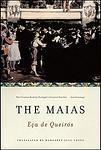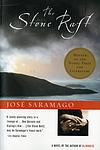The Greatest "Portugal, Satire" Books of All Time
Click to learn how this list is calculated.
This list represents a comprehensive and trusted collection of the greatest books. Developed through a specialized algorithm, it brings together 300 'best of' book lists to form a definitive guide to the world's most acclaimed books. For those interested in how these books are chosen, additional details can be found on the rankings page.
Genres
Satire is a genre of literature that uses humor, irony, and exaggeration to criticize and ridicule human vices, follies, and shortcomings. It is a form of social commentary that aims to expose the flaws and absurdities of society, politics, and culture. Satirical books often employ sarcasm, wit, and parody to challenge the status quo and provoke thought and reflection in readers. Satire can be both entertaining and thought-provoking, and it has been used throughout history as a powerful tool for social and political critique.
Countries
Date Range
Reading Statistics
Click the button below to see how many of these books you've read!
Download
If you're interested in downloading this list as a CSV file for use in a spreadsheet application, you can easily do so by clicking the button below. Please note that to ensure a manageable file size and faster download, the CSV will include details for only the first 500 books.
Download-
1. Candide by Voltaire
"Candide" is a satirical novel that follows the adventures of a young man, Candide, who is living a sheltered life in an Edenic paradise and being indoctrinated with Leibnizian optimism by his mentor. When he is expelled from the paradise for kissing a baron's daughter, he embarks on a journey around the world, witnessing the horrors of war, natural disasters, and human cruelty. Throughout his journey, Candide maintains his optimistic philosophy, despite the constant hardships he faces, ultimately concluding that one must cultivate their own garden, a metaphor for taking control of one's own destiny.
-
2. The Maias: Episodes from Romantic Life by Eça de Queirós
"The Maias: Episodes from Romantic Life" is a compelling narrative set in Lisbon in the late 19th century that follows the lives of a wealthy Portuguese family, the Maias. The story centers around the romantic and professional life of Carlos Maia, but also includes a rich cast of secondary characters. The plot includes themes of love, betrayal, disillusionment, and tragedy, all set against the backdrop of a rapidly changing Portuguese society. The novel is also a critique of the decadence and stagnation of Portuguese society at the time.
-
3. The Gospel According To Jesus Christ by José Saramago
This novel offers a provocative and humanized retelling of the life of Jesus Christ, diverging from traditional biblical narratives. It presents a Jesus who is all too human, grappling with the complexities of life, love, and a sense of destiny. Through a blend of biblical lore and imaginative fiction, the story explores themes of divinity, free will, and morality, challenging readers to reconsider the foundations of faith and the nature of storytelling itself. The narrative delves into Jesus's relationships, his encounters with figures such as God and the Devil, and ultimately portrays a deeply philosophical and introspective version of a figure central to Western civilization.
-
4. The Stone Raft by José Saramago
In this surreal exploration, the Iberian Peninsula breaks off from the rest of Europe and begins to drift across the Atlantic Ocean. As the governments and international community scramble to understand and respond to the phenomenon, five disparate individuals find themselves drawn together on a journey across the newly isolated landscape. Through their experiences and interactions, the narrative explores themes of identity, nationality, and the arbitrary nature of borders.
-
5. The Illustrious House of Ramires by Eça de Queirós
The book follows the story of a young aristocrat from an ancient and noble family who is trying to write a historical novel about his heroic ancestors. However, he struggles with this task as he is constantly distracted by the mundane and frivolous happenings of his modern life. This satirical novel explores themes of national identity, history, and the contrast between the past and the present, all while providing a critique of 19th-century Portuguese society.
-
6. The Lisbon Earthquake by Voltaire
The book in question is a philosophical exploration of the problem of evil, prompted by the catastrophic 1755 earthquake that devastated Lisbon. Through a series of poetic verses, the author grapples with the theological and moral questions raised by such natural disasters, challenging the optimistic belief that this is the best of all possible worlds and questioning the justice of a benevolent deity allowing such suffering. The work is a profound meditation on human suffering, divine providence, and the limits of philosophical and religious consolation in the face of overwhelming disaster.
Reading Statistics
Click the button below to see how many of these books you've read!
Download
If you're interested in downloading this list as a CSV file for use in a spreadsheet application, you can easily do so by clicking the button below. Please note that to ensure a manageable file size and faster download, the CSV will include details for only the first 500 books.
Download




